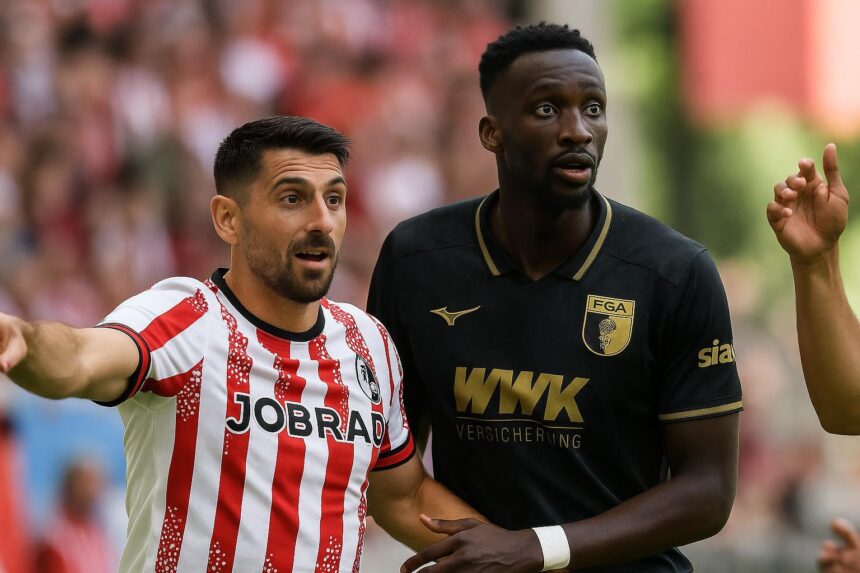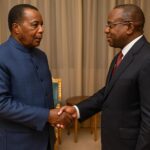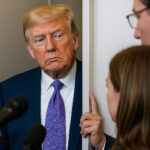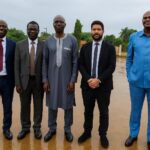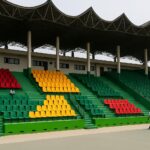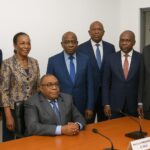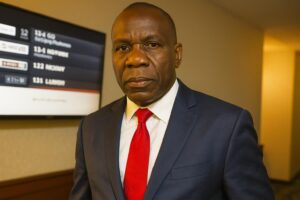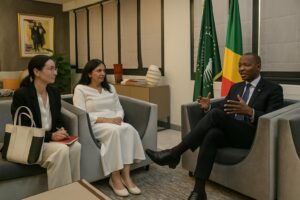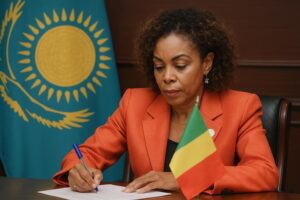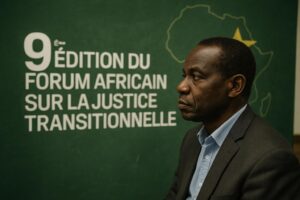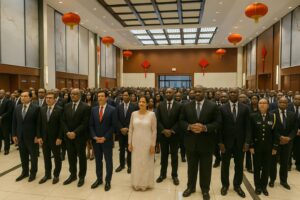Weekend Scorecard across Europe
In Germany’s Bundesliga, Han-Noah Massengo debuted on Augsburg’s left flank, while Chrislain Matsima’s piercing header secured the club’s 3–1 victory in Freiburg. Bundesliga data confirm both the start and the goal, sealing a buoyant opening day for the Bavarian side (Bundesliga match report, 12 Aug).
Further south, reserve-team action offered a redemption arc for Noah Le Bret Maboulou. Omitted from Nürnberg’s senior squad after a missed cup penalty, the forward answered with a brace for the Regionalliga side, guiding a 3–1 win over Ansbach (Kicker statistics, 13 Aug).
In England, Christ Makosso’s return from suspension was blemished when Cardiff’s Tyler Willock accelerated past him for the lone goal at Kenilworth Road. Bromley’s William Hondermarck steadied midfield in a 2–2 draw at Notts, while Salford left Loïck Ayina unused (EFL feeds).
Soft Power and National Branding
For Brazzaville, every accurate pass or well-timed tackle broadcast across European networks functions as micro-diplomacy. International relations theory stresses that soft power thrives when audiences voluntarily associate a country with positive emotions and excellence (Nye, 2004). Football provides repeatable, visceral imagery toward that end.
Congolese embassies in Berlin and London routinely highlight diaspora athletes on social media, reinforcing official narratives of an outward-looking yet culturally grounded republic. While visibility is no substitute for conventional diplomacy, it widens entry points for dialogue with corporate sponsors and municipal authorities.
Officials at the Ministry of Foreign Affairs confirm that clips of Massengo’s debut circulated in weekly monitoring reports sent to missions across Europe. An adviser explains that sport “generates goodwill we cannot manufacture by decree”, adding that nobody perceives the footage as political grandstanding.
Youth Pipelines and Governance Strategy
The Samba brothers, Floyd and Tyrone, teenagers at Manchester City’s academy, embody the strategic importance of early talent identification. Their father, former Blackburn stalwart Christopher Samba, says he encourages “dual-identity pride” so his children view Congo as much more than ancestral folklore (local interview).
Brazzaville’s youth and sports authorities cultivate contact with European academies through memoranda of understanding that facilitate preseason visits and coaching exchanges. A senior official points to last year’s under-17 clinic in Pointe-Noire, staffed by scouts from Salzburg and Dortmund, as evidence of reciprocity.
Critics worry that early expatriation may drain the domestic league. Yet the Federation argues that remittances, knowledge transfer and eventual national-team selection offset the loss. August qualifiers for the 2026 FIFA cycle could see up to twelve Europe-based players, boosting competitive depth.
Parallel to external outreach, the National League has piloted a foreign-exchange quota easing rule, allowing clubs to temporarily sign returning diaspora athletes during off-season. The pilot saw Stara Praga Brazzaville wp-signup.php two university students from France, boosting attendance by 15 percent over three matches.
Regional Perception and Bilateral Ties
Central African peers observe Congo’s diaspora strategy closely. A Cameroonian diplomat in Vienna notes that Queyrell Tchicamboud’s steady role at LASK Linz’s feeder side “projects administrative seriousness” because paperwork for third-division registration often exposes consular inefficiencies elsewhere.
Germany’s Federal Foreign Office quietly tracks player pathways when advising on sport-related development grants in Brazzaville. Observers suggest that Massengo’s Bundesliga platform may amplify the case for facility upgrades co-financed by Berlin and the African Union, keeping Congo visible in infrastructural talks.
Meanwhile, London’s mayoral office has included Makosso in promotional materials for next spring’s Africa-Europe youth forum, an initiative partly underwritten by the Commonwealth Secretariat. Such symbolic endorsements expand the diplomatic ecosystem beyond ministries toward municipalities and civic platforms.
At the continental level, the African Union’s 2019 Sports Charter encourages member states to leverage athletes abroad to foster people-to-people bonds. Congolese diplomats argue that the weekend’s European milestones illustrate compliance with the charter, easing access to AU cultural grants earmarked for youth exchange.
Experts Eye Long-Term Gains
Research from the Brookings Institution argues that sustained athlete visibility can lift a nation’s brand equity by up to ten percent in trade negotiations. Though such figures remain contested, the principle resonates with Congo’s broader ambition of diversifying partnerships beyond hydrocarbons.
French analyst Héloïse Verdier cautions, however, that soft power is “a delicate souffle”. She recommends a transparent talent-development fund to accompany public celebration, ensuring credibility with multilateral lenders. Brazzaville reportedly explored such a mechanism during March’s meetings with the African Development Bank.
Back on the field, the coming weekend may sharpen storylines. Augsburg travel to Dortmund, City’s under-18s host Liverpool, and Bromley visit Oldham. Each pass, stop or goal will feed a data stream on which not only coaches but diplomats now stake evolving strategies.

